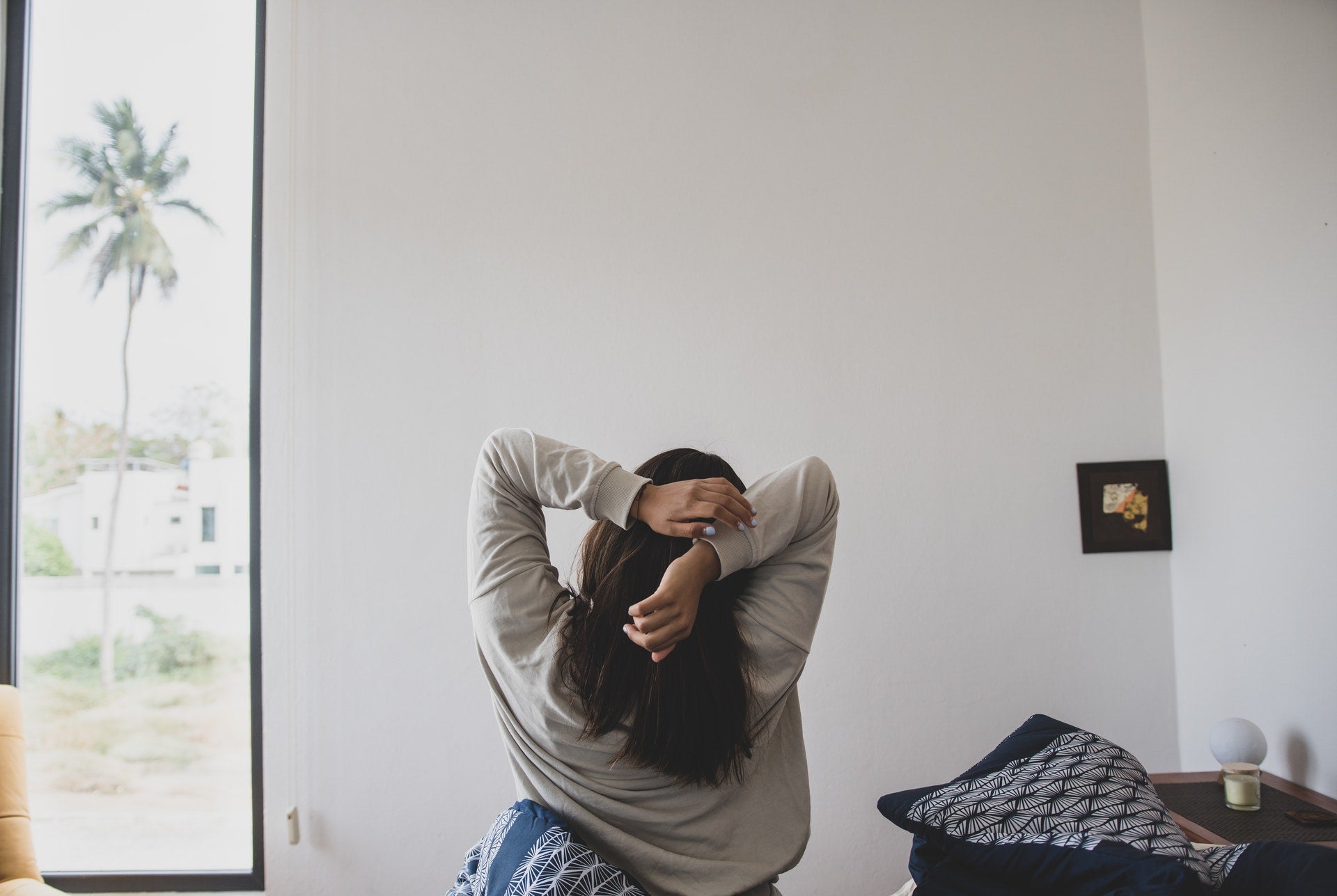
As fully vaccinated Malaysians increase in number and daily infections decline, the economy is slowly opening up in accordance with Malaysia’s National Recovery Plan.
Now that we’re in Phase 3, more sectors are resuming business as usual, which means people have started saying hi to early office commutes once more.
However, with lockdowns and work-from-home measures over the past almost two years, chances are your sleep schedule is a little messed up. That having been said, fixing your sleep schedule isn’t as easy as being able to fall asleep quickly simply by going to bed earlier.

Your Body Clock Is A Real Thing
Known as circadian rhythms, these are 24-hour cycles controlled by the brain in response to exposure to light and darkness. External factors such as travel or your sleeping habits can disrupt these rhythms.
Because of everything that’s been happening, it’s easy to understand why you can’t sleep at night. However, work aside, sleeping early has numerous benefits, especially since getting a full night of quality sleep is crucial to our psychological and physical health.
If you’re looking for tips on how to sleep earlier, here are a few simple ways to fix your sleep schedule.
- Take It Slow
Your body needs time to adjust, so don’t be too ambitious when it comes to sleeping early. Rather than getting into bed and expecting to doze off at an improbable hour, The Sleep Foundation recommends scaling your bedtime back in 15 to 30-minute increments instead. So if you generally start winding down at midnight, aim to be settled and ready for sleep around 11.30pm to 11.45pm instead.
Be sure to leave yourself sufficient time to do so before having to return to work, so buffer in at least one to two weeks for your body to slowly get back into the groove of things.
- Say No To Napping
Taking long naps late in the day might be inviting, but they also could be why you can’t stick to a nightly routine.
Your sleep cycle is divided into four distinct stages. Though it’s easy to wake up within the first two phases – or the non-rapid eye movement (NREM) stages – taking long naps could mean you’ve entered the third or fourth stages of deep sleep. This is why you wake up groggier than before, and it delays the process of going to bed at a reasonable hour.
Instead of napping, try walking around or moving your body during the daytime to recharge. If naps are absolutely essential, be sure to schedule them early in the day and aim for around 20 minutes of rest.

- Make Mornings Bright & Avoid Night Lights
We’ve all been there – those days where it feels particularly difficult to get out of bed.
Even so, you should avoid the temptation of “five minutes more”. Because your brain registers repetitive action as a pattern, it’s important to enforce waking up at a set time. To properly wake yourself up, head to a well-lit space for some sunlight.
Similarly, be sure to avoid harsh lighting or blue lights from your devices at night. In line with your body’s sensitivity to light, keeping your room dim has been reported by scientific studies to be an effective way to tell your brain that it’s time to rest.
- Avoid Sleep Killers For Dinners
Ever had a hefty celebratory meal, followed by dessert and a drink or two before bed?
Though it’s a great way to unwind, it also isn’t helping you sleep at night. Verywell Health reports that the intake of food prompts the release of insulin, which is linked to your circadian rhythm, to signal wakefulness. As a result, your brain registers the need to stay awake well into your bedtime.
Until your sleep pattern readjusts itself, skip the booze and try having lighter meals at night. If you’re having a big dinner, have it earlier in the evenings to allow enough time to digest your food before going to sleep.
- Stay Up All Night
For those who toss and turn until morning arrives, it might be best to pull an all-nighter. This means you’ll have to keep yourself awake through the night and the next day, sleeping only during the following night instead.
This is so your body can cumulatively store lethargy levels for you to fall asleep at an appropriate time the subsequent night. Keep in mind you will be extremely tired the day after your all-nighter.
As such, avoid heavy lifting and driving the day and wait until a reasonable bedtime hour to go to sleep. Finally, make your sleep as comfortable and restful as possible for you to successfully reset your body clock, just in time to get back out into the world.

